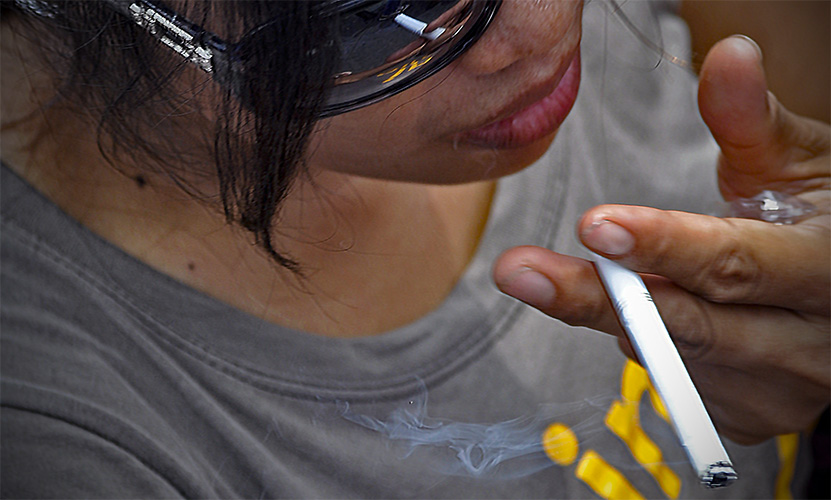Senator Win Gatchalian sees the need to heighten the campaign on the adverse effects of continued use of cigarette and tobacco products, especially among the youth, to lessen the risk of those vulnerable to COVID-19 infection.

In a scientific brief, the World Health Organization (WHO) said that available evidence suggests an association between smoking and increased severity of disease and death in hospitalized CoViD-19 patients. The WHO also urged tobacco users to stop the use of these harmful products given the well-established harms they cause, including cancer.
In a webinar with student leaders, Gatchalian emphasized three important steps for a smoke-free Philippines: fight the heavy lobby from the tobacco industry, transition tobacco farmers to planting sustainable high-quality crops, and dissuade the youth from smoking.
He cited various global and national tobacco surveys in Southeast Asia, including the Global Youth Tobacco Survey (GYTS), which revealed that the Philippines is second-highest in terms of cigarette smoking prevalence among young males aged 13-15. The same set of surveys revealed that cigarette smoking prevalence among young females in the same age group is highest in the Philippines compared to other Southeast Asian countries.
In the Philippines, cigarette prevalence is 17.6 percent for boys aged 13-15 and seven percent for girls of the same age, the GYTS revealed.
The same survey also showed that 50.6 percent of students noticed tobacco advertisements or promotions at points of sale, while 67.1 percent were taught in school about the dangers of tobacco in the past 12 months. In terms of attitude towards smoking, 10.8 percent of students thought smoking tobacco helps people feel more comfortable at celebrations, parties, and social gatherings.
Young Filipinos, however, are heavily in favor of banning smoking in public places, with 93.1 percent of students in favor of a smoking ban in enclosed public places. Around 90.9 percent of students favor a smoking ban in outdoor public places.
Aside from leveraging health education to warn about the dangers of smoking, Gatchalian also emphasized the need to boost learners’ media and information literacy, especially because of their exposure to tobacco advertisements. Since learning from home will be the new norm when classes reopen, Gatchalian said that the learning environment for the youth should be smoke-free.
“I’m in support of the advocacy to make our campuses, offices, restaurants, and enclosed public places smoke-free. I really believe that our country would be more progressive and economically developed if we channel our resources to more productive endeavors instead of treating smoking-related diseases, which can be prevented,” said Gatchalian.
Last year, Gatchalian proposed a tobacco tax hike of P70 per pack to curb Filipinos’ smoking habits and fund the government’s Universal Health Care program. Gatchalian is also seeking higher taxes and heavier regulations on vapes, including a complete ban of vaping among teenagers.


